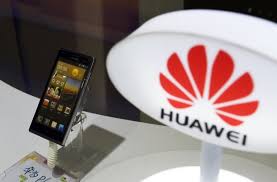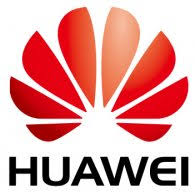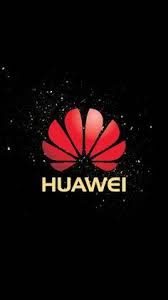Huawei, which roughly translated means “a splendid act”, was founded by Ren Zhengfei, a former deputy director of the People’s Liberation Army, in 1987 in Shenzhen, China. Rather than rely on joint ventures to secure technology transfers from foreign companies, which were often reluctant to transfer their most advanced technologies to Chinese firms, Ren looked to reverse engineer foreign technologies with local researchers. At a time when all of China’s telecommunications technology was imported, Ren hoped to build a domestic Chinese telecommunication company that could compete with, and perhaps one day even replace, foreign competitors.
 Huawei is multinational telecommunications equipment and consumer electronics manufacturer. The company offers its products and services in more than 170 countries, and it serves at least 45 of the 50 largest telecom operators. Huawei has over 1,500 networks, reaching one-third of the world’s population. Huawei overtook Ericcson in 2012 as the largest telecommunications equipment manufacturer in the world and in 2018, overtook tech giant Apple as the second-largest manufacturer of smartphones in the world, just behind Samsung.
Huawei is multinational telecommunications equipment and consumer electronics manufacturer. The company offers its products and services in more than 170 countries, and it serves at least 45 of the 50 largest telecom operators. Huawei has over 1,500 networks, reaching one-third of the world’s population. Huawei overtook Ericcson in 2012 as the largest telecommunications equipment manufacturer in the world and in 2018, overtook tech giant Apple as the second-largest manufacturer of smartphones in the world, just behind Samsung.
 In December 2018, Huawei reported that its annual revenue had risen to $108.5 billion in 2018 (a 21% increase over 2017), surpassing $100 billion for the first time in company history.
In December 2018, Huawei reported that its annual revenue had risen to $108.5 billion in 2018 (a 21% increase over 2017), surpassing $100 billion for the first time in company history.
Officials and politicians within the U.S. federal government have raised concerns that Huawei-made telecommunications equipment may be designed to allow unauthorised access by the Chinese government and the Chinese People’s Liberation Army since founder and CEO Ren Zhengfei, served as an engineer in the army in the early 1980s. In a 2011 open letter, Huawei stated that the security concerns are “unfounded and unproven” and called on the U.S. government to investigate any aspect of its business.
Several major U.S. wireless carriers, as well as consumer electronics giant Best Buy, began to drop Huawei’s products in early-2018, prompting Huawei to pull out of the market entirely. The company has argued that its products posed “no greater cybersecurity risk” than those of any other vendor and that there is no evidence of the U.S. spying claim.
 Huawei classifies itself as a “collective” and does not refer to itself as a private company. The U.S. headquarters for Huawei are located in Plano, Texas.
Huawei classifies itself as a “collective” and does not refer to itself as a private company. The U.S. headquarters for Huawei are located in Plano, Texas.
Huawei, which roughly translated means “a splendid act”, was founded by Ren Zhengfei, a former deputy director of the People’s Liberation Army, in 1987 in Shenzhen, China. Rather than rely on joint ventures to secure technology transfers from foreign companies, which were often reluctant to transfer their most advanced technologies to Chinese firms, Ren looked to reverse engineer foreign technologies with local researchers. At a time when all of China’s telecommunications technology was imported, Ren hoped to build a domestic Chinese telecommunication company that could compete with, and perhaps one day even replace, foreign competitors.
 Huawei is multinational telecommunications equipment and consumer electronics manufacturer. The company offers its products and services in more than 170 countries, and it serves at least 45 of the 50 largest telecom operators. Huawei has over 1,500 networks, reaching one-third of the world’s population. Huawei overtook Ericcson in 2012 as the largest telecommunications equipment manufacturer in the world and in 2018, overtook tech giant Apple as the second-largest manufacturer of smartphones in the world, just behind Samsung.
Huawei is multinational telecommunications equipment and consumer electronics manufacturer. The company offers its products and services in more than 170 countries, and it serves at least 45 of the 50 largest telecom operators. Huawei has over 1,500 networks, reaching one-third of the world’s population. Huawei overtook Ericcson in 2012 as the largest telecommunications equipment manufacturer in the world and in 2018, overtook tech giant Apple as the second-largest manufacturer of smartphones in the world, just behind Samsung.
History
 In December 2018, Huawei reported that its annual revenue had risen to $108.5 billion in 2018 (a 21% increase over 2017), surpassing $100 billion for the first time in company history.
In December 2018, Huawei reported that its annual revenue had risen to $108.5 billion in 2018 (a 21% increase over 2017), surpassing $100 billion for the first time in company history.
Officials and politicians within the U.S. federal government have raised concerns that Huawei-made telecommunications equipment may be designed to allow unauthorised access by the Chinese government and the Chinese People’s Liberation Army since founder and CEO Ren Zhengfei, served as an engineer in the army in the early 1980s. In a 2011 open letter, Huawei stated that the security concerns are “unfounded and unproven” and called on the U.S. government to investigate any aspect of its business.
Several major U.S. wireless carriers, as well as consumer electronics giant Best Buy, began to drop Huawei’s products in early-2018, prompting Huawei to pull out of the market entirely. The company has argued that its products posed “no greater cybersecurity risk” than those of any other vendor and that there is no evidence of the U.S. spying claim.
 Huawei classifies itself as a “collective” and does not refer to itself as a private company. The U.S. headquarters for Huawei are located in Plano, Texas.
Huawei classifies itself as a “collective” and does not refer to itself as a private company. The U.S. headquarters for Huawei are located in Plano, Texas.


Motive for the U.S. – China Trade War – Because the huge U.S. trade deficits with China has funded hundreds of thousands of Chinese troops for the Federal Reserve Shareholders planned massive U.S. genocide take the U.S. from current 350 million to 120 million the U.S. has no option but to attack China financially with tariffs to stop China and Russia from participating in the Federal Reserve Shareholders planned U.S. genocide that would have catastrophic effect on China, India, Mexico, Korea, etc. This is to inform the Chinese citizens of the necessity to put tremendous pressure on their Chinese government to give President Trump everything he wants and balance the U.S. trade deficits and balance with China that has been used to fund massive numbers of Chinese troops and mercenary armies that eventually will be used for the Federal Reserve Shareholders massive genocide inside China. The Federal Reserve Shareholders already attack China with weather satellites likely fueled by India’s nuclear reactors like the United States with many of the programmers of the satellites being from India and Russia. The huge imbalance of trade with the U.S. due to extremely low labor costs in China continues to make the Chinese citizens nothing but slaves for the Chinese government, the Chinese elites, and the Federal Reserve Shareholders. Massive tariffs on all Chinese exports to the United States is to the benefit of the Chinese citizens of the middle class and lower class. The only way China companies and the Chinese government and similar nations like Mexico, India, Korea, etc. will survive these necessary U.S. tariffs is to pay their citizens a fair wage in line with the United States, Canada, and Europe so the Chinese citizens can afford to purchase a majority of Chinese goods like Americans. To stop the Federal Reserve Shareholders planned massive U.S. genocide that will collapse the economies of all nations the U.S. must put huge tariffs on all imports from all nations especially from countries like China, Mexico, Africa, India, Korea, etc. that do not pay their citizens a fair wage for their services.